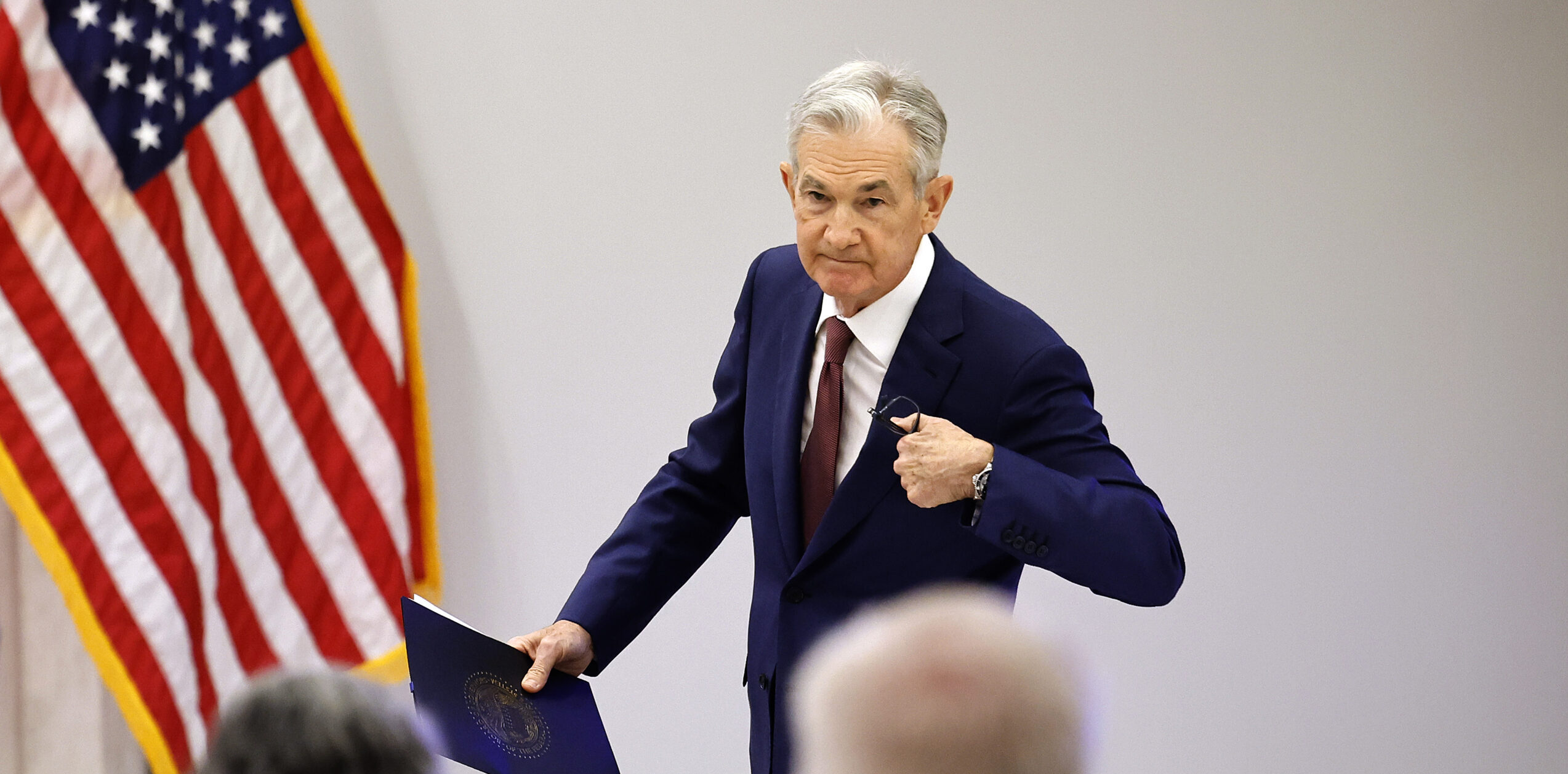Well, that was sudden. After markets were in full-blown rally mode last month, there were fears that investors were getting ahead of themselves. But with inflation hovering at 3%, it was expected the central banks would want to dampen the enthusiasm in markets. Surely, the message they’d send was that it was too soon to uncork the champagne.
But no. At the conclusion of the US Federal Reserve Board’s Wednesday meeting, Chairman Jerome Powell more or less said “run with it.” The Fed didn’t actually cut rates and warned that future hikes were on the table: inflation was still too high and that progress towards its 2%-inflation target was “not assured,” Powell remarked.
Nonetheless, in the dot-plot of expected rate changes released, the Fed showed itself to be leaning towards rate cuts next year, with Chairman Powell saying that the Fed would need to cut rates “way before” inflation had fallen back to 2%. He added that there were also risks in keeping rates too high for too long.
Investors left the meeting feeling that Christmas had come early. The stock market shot up some 2%, and bond yields plunged. Come the morning, major investment houses were revising their market forecasts, predicting new record highs for the indices next year. Word was out: not only had the economy stayed out of recession, but the days of cheap credit were returning.
Running with the bulls at a time they don’t need help seems like a risky thing for the Fed to do. Maybe its board members know something the rest of us don’t, and the economy is slowing faster than we know. Or maybe the American central bank really has managed to pull off the “immaculate disinflation” that has been the dream scenario of every investor for the past year — bringing inflation and interest rates back down without tipping the economy into recession.
But it may also be that the Fed got just a bit ahead of itself. But one consequence is that Jerome Powell’s credibility is now on the line: if inflation does remain tenacious in the months ahead, the Fed will have to rain on everyone’s parade at some point.
Add to that the very delicate politics of 2024. Just imagine how a certain Republican challenger will regard the Fed engineering low interest rates and a booming stock market in an election year. Or what a president might do should the Fed be wrong, inflation lingers, mortgage rates bounce back up and the markets turn south.
The one thing Jerome Powell has ensured is that a lot of eyes will be on him next year. One can’t help but wonder if he’d have done better to say as little as possible and let matters take their course.











Join the discussion
Join like minded readers that support our journalism by becoming a paid subscriber
To join the discussion in the comments, become a paid subscriber.
Join like minded readers that support our journalism, read unlimited articles and enjoy other subscriber-only benefits.
Subscribe